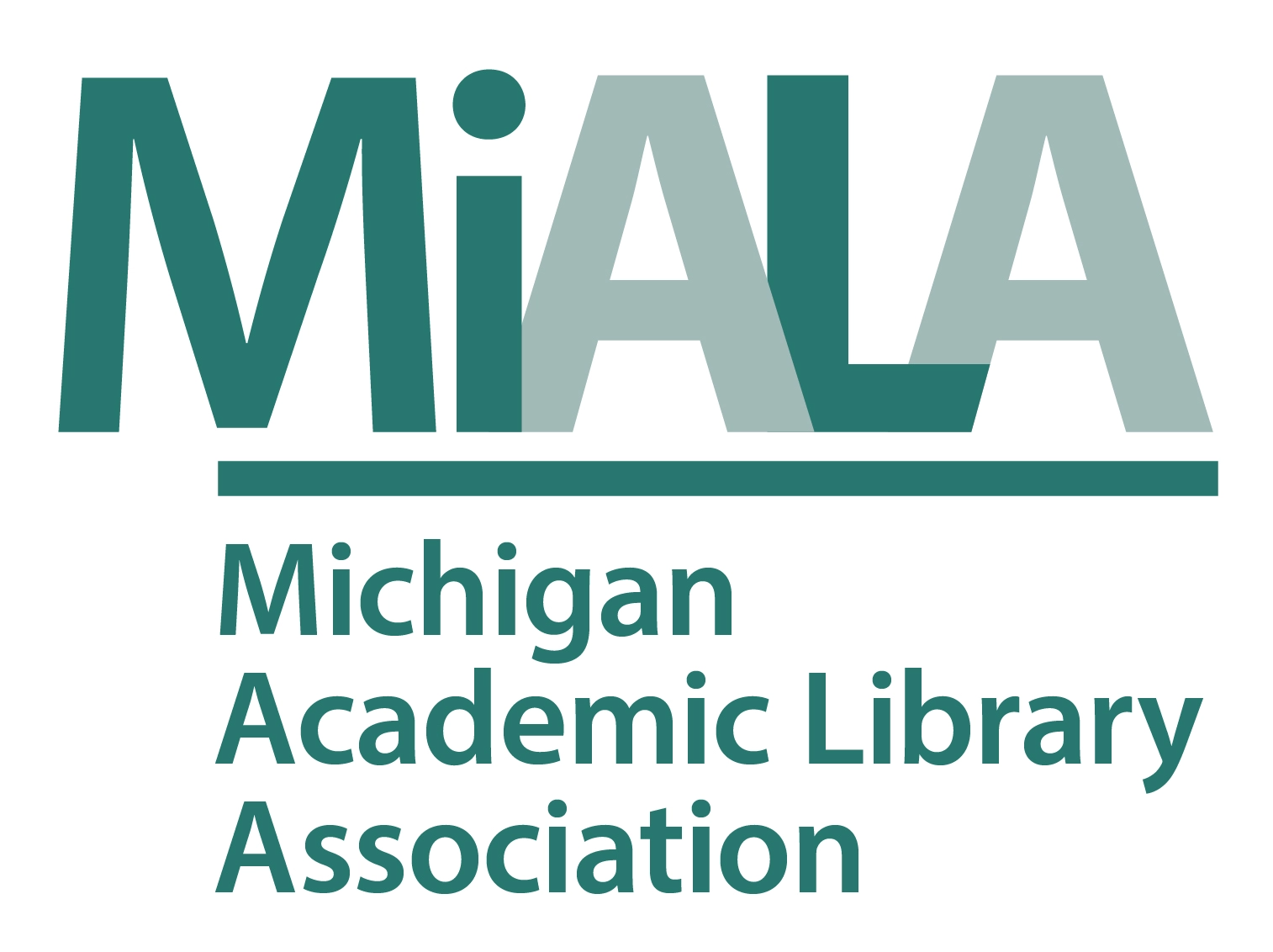- About
- Membership
- Education & Events
- Event Calendar
- Annual Conference
- Spring Institute for Youth Services
- Think Space
- Surviving and Thriving as a Public Library Director
- Leadership Academy
- Michigan Library Advocacy Day
- Advocacy Hour
- MLA Connect
- MLA Connect On Demand
- Call for Proposals
- Vendor and Sponsor Opportunities
- Future Event Dates and Locations
- Programs & Services
- Advocacy
- News
- Job Board
 |
 |
 |

MLA Advocacy Action Plan | Priority Areas | Bill Tracker | Call To Action | Find Your Legislators | How to be a Good Advocate | Intellectual Freedom resources | Advocacy News Penal Fines - MLA Advocacy Priority AreaMichigan is the only state to have constitutionally mandated funding for libraries through penal fines which account for 3% to 70% of public libraries' annual budgets. The collection and distribution of penal fines are at times complicated to understand and MLA keeps this front and center on our advocacy priority list. MLA Statement on Penal FinesMarch 19, 2021 Since 1835, the people of the State of Michigan constitutionally mandated that penal fines be allocated to libraries. Article VIII, section 9 of the Michigan Constitution states: The legislature shall provide by law for the establishment and support of public libraries which shall be available to all residents of the state under regulations adopted by the governing bodies thereof. All fines assessed and collected in the several counties, townships and cities for any breach of the penal laws shall be exclusively applied to the support of such public libraries, and county law libraries as provided by law. Operating a library is costly. Like any business, libraries must pay for staff salaries and benefits, building maintenance, utilities, insurance, equipment, digitization, books, etc. Penal fines are a unique and important funding source, accounting for 3% to 70% of annual budgets for public libraries. In 2008, penal fines were at their highest level -- $32 million. By 2020, penal fines had dropped to $24 million. MLA continues to see a slow erosion of this source of income for libraries across the state with little control on reversing this trajectory. What is causing this?
In addition, while penal fines were once seen as “using the fruits of crime to provide the opportunity and resources for knowledge, which would help people refrain from crime,” they are now seen as an equity and social justice issue with excessive fines and the transparency of processes unfairly burdening those that commit crimes. The uncertain future and social consequences of penal fine collections make them a complicated funding source. Through its advocacy efforts, MLA will:
Penal Fines History, Importance & Funding for Public LibrariesThank you to Clare Membiela, Library of Michigan, for providing MLA with this detailed report on the history and state of Penal fines in Michigan! Please note the information listed below and information contained in this report is intended as a tool to assist in the clarification of the history and process of Penal Fines. It is not intended as legal advice. Library Staff Boards and Directors should consult with their library attorneys if they have questions regarding laws on funding or payments. Michigan is the only state to have constitutionally mandated funding for libraries. That funding comes in the form of Penal Fines and the way these funds are collected and distributed is at times complicated to understand. Penal fines are a unique and important funding source for libraries. However, their uncertain future and social consequences make them a complicated funding source. In addition, the uneven allotment of fines across the state results in a feast or famine outcome for many libraries- some areas depend on them and for others the fines are little more than a minor budget line. Public Libraries deserve a better allocated and more consistent form of funding. However until that funding is secured, penal fines need to be responsibly protected. Educating librarians, boards, judges, court personnel and municipal officials about penal fines and their use by libraries as well as advocacy by libraries for the maintenance of penal fines and the development by the legislature of new funding options for libraries will be a key component of future library fiscal health. What is a Penal Fine?The term “Penal Fine” comes from the “Penal code” which is the name of that section of Michigan laws that denote criminal laws and their punishment. The word “penal” denotes laws that dictate punishments for their violations, “The word penal connotes some form of punishment imposed on an individual by the authority of the state.”PENAL, Black's Law Dictionary (11th ed. 2019) Generally, “penal” is used for criminal laws – laws for the protection of the state as a whole. “Civil” laws are laws that protect individuals. So, a “Penal Fine,” is a fine levied as punishment for a violation of the criminal (pr “penal”) code, or a violation against the state. A “Civil Fine” is a fine levied as a result of a violation of the civil code (such as many laws governing businesses and contracts and some traffic and safety issues), or a violation against an individual. Why do Penal Fines Fund Libraries?Article VIII, section 9 of the Michigan Constitution states: The legislature shall provide by law for the establishment and support of public libraries which shall be available to all residents of the state under regulations adopted by the governing bodies thereof. All fines assessed and collected in the several counties, townships and cities for any breach of the penal laws shall be exclusively applied to the support of such public libraries, and county law libraries as provided by law. This clause has been in the Michigan Constitution since its inception in 1835. Despite some slight language alterations, the intent of the drafters has consistently been to promote and support the right of every Michigan citizen to access a public library, despite repeated attempts by municipalities to usurp the funds. There are varying accounts as to why penal fines, but one possibility is the remarks of one of the constitutional delegates who posited the value in using the fruits of crime to provide the opportunity and resources for knowledge, which would help people refrain from crime. Other constitutional convention remarks allude to the funds being an incentive for a municipality or a school district to maintain a library. Still, other discussions indicate that the distribution to libraries rather than courts or other municipal entities was preferable as libraries are a neutral source – the entities enforcing and interpreting the laws are not benefitting from their infraction- the library is. No matter the reason, constitutional convention delegates consistently chose to retain this provision. In addition, constitutional materials also consistently indicate that penal fines have never been meant to be the sole financial support of a public library. Michigan is one of 12 states that uses penal fines as funding for public libraries, and the only one where that promise is enshrined in the state constitution. According to public library statistics maintained by the Library of Michigan, penal fines account for between 3% and 70% of the annual budgets for public libraries. The Impact Penal Fines Have on Libraries – Why We CareMichigan public libraries rely on local funding for their operating budget. Penal fines are an important part of that local funding. While it is true that penal fines have never been intended to be a primary source of a library’s budget, libraries have come to depend on penal fines as a reliable piece of their budgets. Penal fines are a source of revenue that legally can not be utilized or distributed to any other entity but public libraries. Municipalities and other government entities are not able to obtain these funds. Penal fines accrue for the populations of every municipality in the state. That means that if an area is not served by a public library, the penal fines for that population are allocated by the county and maintained in an escrow account until the population becomes served by a library. This means that the funds are kept in an account until the municipality either forms a library, or contracts with an existing library for services. This contracting is an efficient way for municipalities that can not afford, or who have no desire to, form a library to provide their populations with library services. It also provides an additional means for libraries to gain revenue and help communities other than their own. Because of the emphasis on local funding for libraries, library budgets in Michigan are as diverse as the libraries themselves- From as high as $21 million to as low as $18,000.00. Generally, the smaller the library, the more they depend on penal fines. With approximately 70% of libraries in Michigan being small and rural, many rely on penal fines to fund portions of operations and/or programming. Per capita amounts so far for 2020 range from $1.10 per capita in Kalamazoo County to $15.06 in Mackinac County. Penal fines are a stable funding source in that they are constitutionally designated to public libraries. Despite the variations on amounts from year to year, since penal fines are constitutionally guaranteed to libraries, and funded outside of the state’s tax revenues and budget, penal fines can not be affected by the legislature or state agencies. As long as crimes are committed and fines are levied, penal fines will benefit libraries. Libraries must be prepared, however, for other factors that will affect penal fines such as the evolution of criminal justice and a continuing understanding of the impact certain punishments have on communities of color and other marginalized populations. In the coming years, these factors could result in fewer fines and smaller revenue for libraries. Penal fines are a unique and important funding source for libraries. However, their uncertain future and social consequences make them a complicated funding source. In addition, the uneven allotment of fines across the state results in a feast or famine outcome for many libraries- some areas depend on them, and for others, the fines are little more than a minor budget line. Public Libraries deserve a better allocated and more consistent form of funding. However until that funding is secured, penal fines need to be responsibly protected. Educating librarians, boards, judges, court personnel, and municipal officials about penal fines and their use by libraries as well as advocacy by libraries for the maintenance of penal fines and the development by the legislature of new funding options for libraries will be a key component of future library fiscal health. ResourcesThe resources cited below were provided in the attached report, prepared by Clare Membiela, Library of Michigan Library Law Consultant. Please also see this memo provided by Anne Seurynck, Foster Swift Collins & Smith PC regarding the authority granted to libraries with respect to penal fines. Library of Michigan, Penal Fine Website, https://www.michigan.gov/libraryofmichigan/0,9327,7-381-88855_89735_89760_89975---,00.html (Plus numerous conversations and patient explanations from Kathy Webb, Library of Michigan, State Aid and Penal Fine coordinator). Van der Ploeg, J.E.M., Penal Fines as Applied to the Support of Public Libraries in Michigan, MALS Thesis, University of Illinois, Urbana, 1929 (Available from C. Membiela digitally, and the Library of Michigan in print). Saginaw Public Libraries v. Judges of the 70th Dist. Ct, 18 Mich. App. 379 (1982) (Court of Appeals decision involving a library’s objection to how certain court costs and fees were allocated by a court in addition to a penal fine. The defendant court had been improperly assessing costs in civil infractions. The decision clarifies the ability of a court to levy costs and provides some information as to the process). https://casetext.com/case/library-bd-v-district-judges#p385 Gillespie Michigan Criminal Law and Procedure 2d, Section, 22:128, Fines (2020) (Gillespie’s is a legal encyclopedia of criminal procedure. This section is an explanation of Criminal fines). (Text available from C.Membiela, or any Michigan law library). Hon. David A. Hogg, District Court Tax Farming Are Judges the New Publicans?, Mich. B.J., February 2011, at 28, 29–30 The Financial Impact of Criminal Charges — An Unequal Debt to Society Targeted Fines and Fees Against Communities of Color – a US Commission on Civil Rights Briefing Targeted Fines and Fees Against Communities of Color (This page by a non-profit group provides an additional explanation for the above report, as well as other information on this topic). https://finesandfeesjusticecenter.org/articles/targeted-fines-fees-against-communities-color/
The Information on this page is provided by a report prepared by Clare Membiela, Library of Michigan Library Law Consultant.
|








